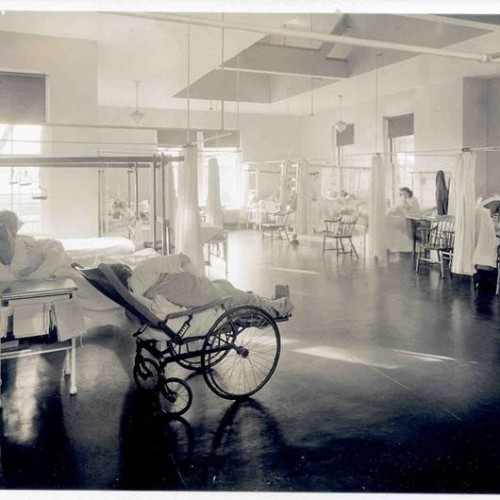Final #Throwback Therapies lecture to be presented by Susan Mattern on March 30
Susan Mattern will speak on “Structure and Meaning in the Case Records of the Massachusetts General Hospital (New England Journal of Medicine)” at 2pm Wednesday, March 30 in Room 250 of the Zell B. Miller Learning Center. A reception will follow the talk in the Miller Learning Center second floor rotunda.
Dr. Mattern’s most recent book is The Prince of Medicine: Galen in the Roman Empire (Oxford University Press 2013). It is a social-historical biography of the ancient physician Galen, a cultural icon whose works were the basis of western medicine until the Renaissance. She has also written Galen and the Rhetoric of
 Healing (Johns Hopkins University Press, 2008), an analysis of Galen’s stories about his patients and a study of his medical practice, and Rome and the Enemy: Imperial Strategy in the Principate (University of California, 1999). Dr. Mattern has co-written a textbook, The Ancient Mediterranean World from the Stone Age to A.D. 600 (Oxford University Press, 2004). After a year of professional development studying social and psychology and transcultural psychiatry, she has begun publishing articles on mental disorders in antiquity. She is also working on a global history of menopause in addition to teaching graduate and undergraduate classes in World History and in the history of Greece, Rome, ancient Egypt, marriage, disease, medicine, women, and law.
Healing (Johns Hopkins University Press, 2008), an analysis of Galen’s stories about his patients and a study of his medical practice, and Rome and the Enemy: Imperial Strategy in the Principate (University of California, 1999). Dr. Mattern has co-written a textbook, The Ancient Mediterranean World from the Stone Age to A.D. 600 (Oxford University Press, 2004). After a year of professional development studying social and psychology and transcultural psychiatry, she has begun publishing articles on mental disorders in antiquity. She is also working on a global history of menopause in addition to teaching graduate and undergraduate classes in World History and in the history of Greece, Rome, ancient Egypt, marriage, disease, medicine, women, and law.
Mattern will speak as part of Throwback Therapies: History of Medical Science, a seminar series presented by the Biomedical & Health Sciences Institute, the Willson Center for Humanities and Arts, Department of Classics, Department of History, and the Medical Partnership.
#Throwback Therapies: History of Medical Science
#Throwback Therapies is an innovative new interdisciplinary seminar series designed to entertain and enlighten any audience with interests in the origins of modern health sciences.
What if we read the New England Journal of Medicine as literature?
What were doctors up to in the time of the Roman Empire?
What does forensic pathology tell us about medical practices during the Civil War?
What prompted families to wait in long lines for polio vaccinations in the last century?
Come and find out! See what happens when historians do medicine and doctors do history in #Throwback Therapies: History of Medical Science.
